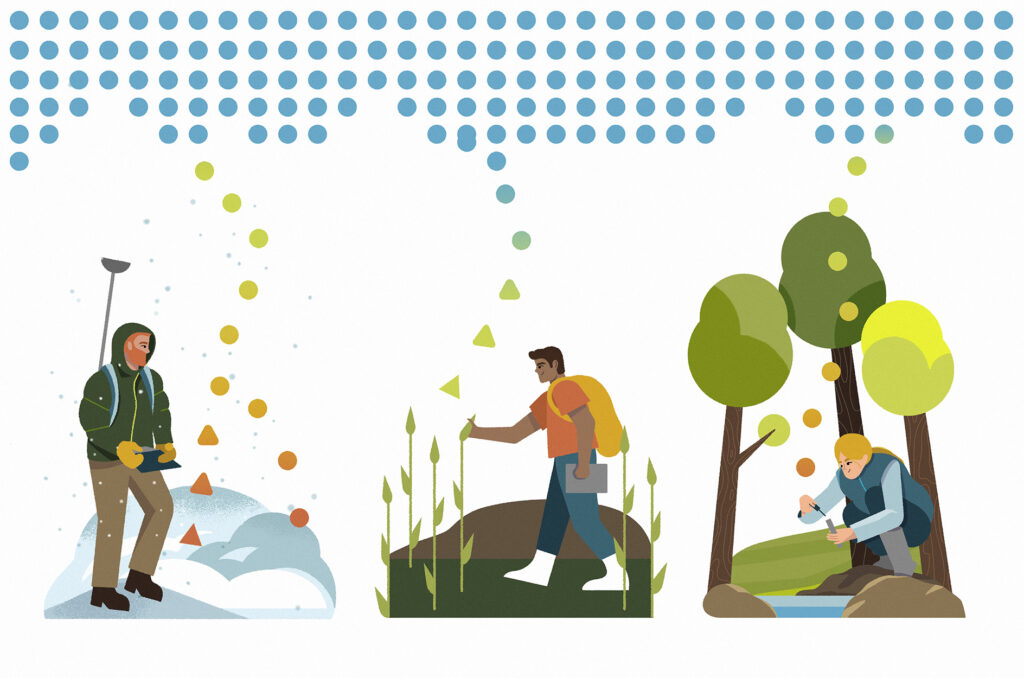Scientists studying environmental microbiomes generate giant datasets of molecular information and genetic sequences. Depending on the team who created them, these studies differ by organization, style and language of notation, and software. Scientists trying to compare this data can become frustrated by the lack of specifics about the data and the challenges of trying to compare datasets side by side. The National Microbiome Data Collaborative (NMDC) was founded in 2019 by a diverse group of experts – with funding from the Department of Energy – to help address these ongoing data challenges through community engagement and the creation of new tools and standardized practices.
The NMDC Ambassador Program is one of the central pillars of the program’s engagement strategy. The Ambassador Program was launched in 2021 with the goal of training early career scientists with diverse research interests in best practices for biological data standardization and equipping them with the resources and experience needed to share their new skills. The Ambassadors can then train peers at their home institutions and beyond by hosting their own events and workshops. The team believes this community-driven learning model will spread the principles of Findable, Accessible, Interoperable, and Reusable (FAIR) data across the country.
The NMDC is led out of Lawrence Berkeley National Laboratory and includes partners at Los Alamos National Laboratory and Pacific Northwest National Laboratory.
Read more on the Berkeley Lab News Center.




